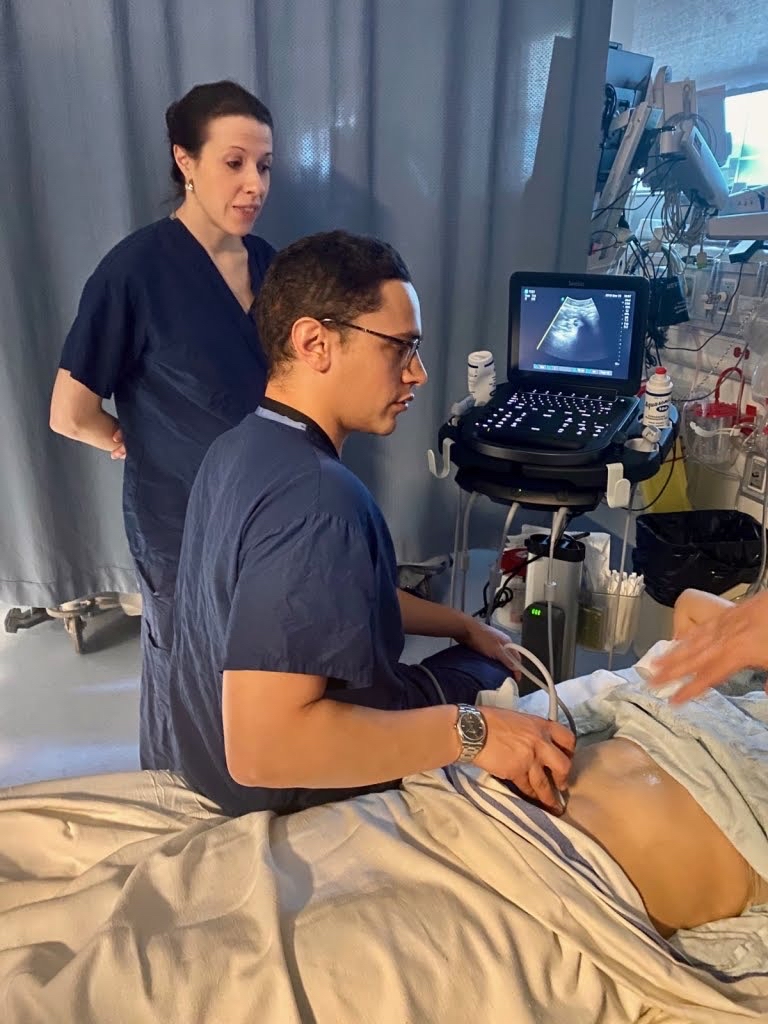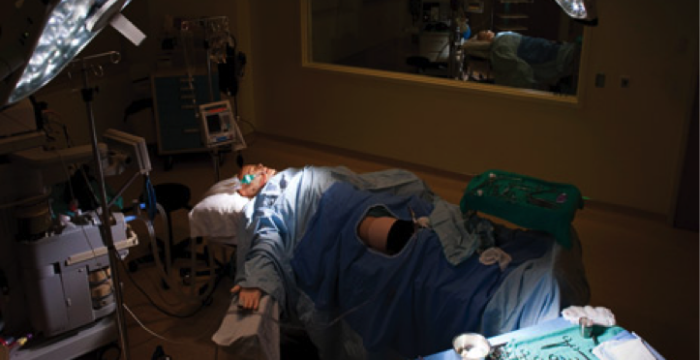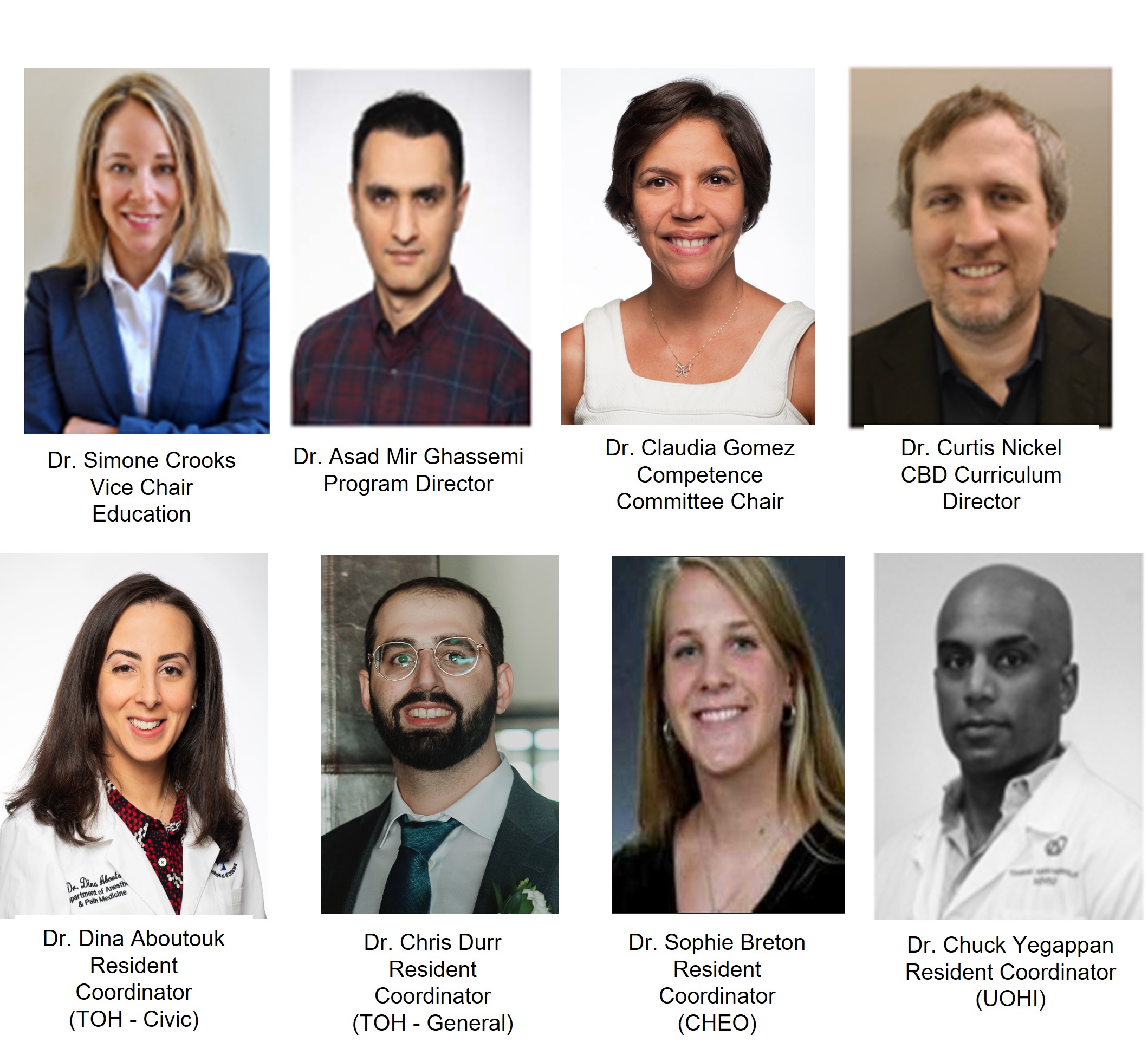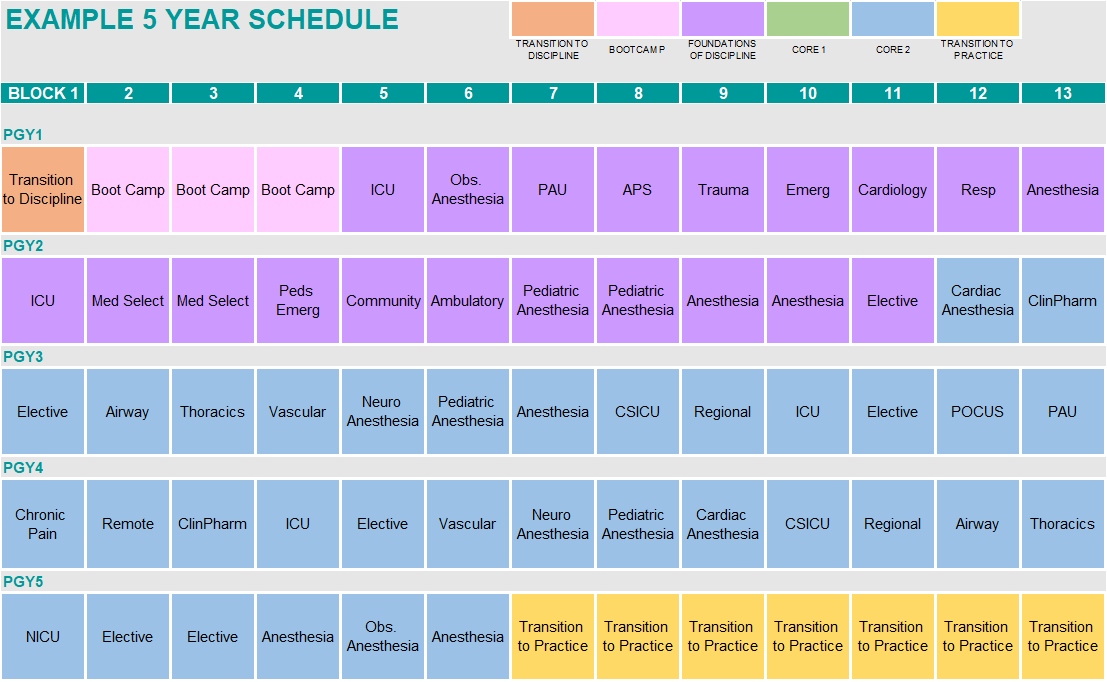Formative (for learning) and summative (for assessment) simulation education is an integral part of our residency program and occurs at all stages of training.
The Foundations Bootcamp module is heavily rooted in simulation education: our PGY1 residents engage in over 30 simulation scenarios and partial task training as part of their bootcamp experience. These junior residents learn important knowledge, skills and attitudes in a safe learning environment, while bonding with their peers. They practice the critical skill of reflection and debriefing, which is the cornerstone of adult learning.
All residents participate in our global simulation curriculum, which is a 4 year rotating curriculum that focuses upon development of crisis resource management skills. Combined obstetric-anesthesia simulation, trauma- focused simulation and pediatric simulation are regularly interspersed throughout residency.
Junior residents demonstrate their knowledge and skills in the foundations OSCE and CRM-OSCE. Our senior residents engage in the Royal College mandated initiative: Canadian National Anesthesia Simulation Curriculum (CanNASC) where they undergo simulation scenarios as part of a summative evaluation. The resident-run ACLS milestone summative assessment program allows our residents to engage in both the implementation of simulation scenarios and providing feedback to their peers.
Residents have the opportunity to do an elective in simulation education in their senior years, assisting in the development and implementation of our simulation curriculum.
Scholarship Opportunities
Anesthesiology Research and Scholarship: The quality and success of our faculty researchers provide a great environment for our residents to get valuable experience contributing to a scholarship project. Scholarship in our department is showcased at our yearly Gary Johnson Research Day in May. Our hope is to support residents in achieving the goal of presenting at a national meeting and/or achieving a publication. Recently, several of our residents have been awarded CAS research grants and presented at national conferences. Our department is thoroughly committed to supporting scholarly activity and welcome interest and motivation from residents.
Learning Cases:
Our education faculty have developed a series of clinical cases for each module. These learning cases use the principle of flipped classroom to engage the resident in self-directed learning. These cases promote module specific cases that match the clinical rotation. There are approximately 5 specific learning cases per module, and we have amassed over 200 learning cases on our system to date. Each case comes with a case stem, questions, and 2-4 high yield references based on the most recent scientific evidence. Residents prepare for the cases on their own time, and when ready initiate a review with the faculty to develop a deeper understanding of the topic. The learning cases help us assess core knowledge and practical information to help demonstrate an understanding related to milestones.
Academic Half Day Curriculum:
The Academic Half Day (AHD) structure for residents is organized to support progressive learning and inter-year collaboration. For PGY-1 residents, the first six blocks will focus on Foundations/Bootcamp sessions held on Tuesdays. These sessions are designed to avoid redundancy with the broader 3-year curriculum. During the initial two blocks, some sessions will be led by senior residents (PGY2–5) to foster camaraderie across training levels, followed by informal social gatherings such as café meetups or BBQs, with funding provided to support these events. Starting in Block 7 (January), PGY-1s will transition to join PGY2–3s on Thursdays, ensuring comprehensive exposure to the full curriculum in preparation for exam-focused study in PGY-4.
For PGY-2 and PGY-3 residents, AHD will continue on Thursdays, following the established 3-year rotating curriculum. This includes coverage of Barash textbook chapters and essential CanMEDS competencies. The program is enhancing its offerings with more interactive, role-aligned workshops—such as sessions on managing difficult airways and how to have difficult conversations such as end of life care with our experts in Palliative care and MAID. High-demand workshops like PoCUS and Regional Anesthesia will be repeated annually. Residents are encouraged to suggest additional topics.
For PGY-4 and PGY-5 residents, a shift occurs in Block 7, with both groups attending Tuesday AHD sessions together. PGY-4s will also begin Academic Full Days in April to deepen their preparation for final exams.
Longitudinal Oral Exam Preparation:
Our faculty are dedicated to preparing our residents for the Royal College examination. We invest into regular and structured oral exam preparations program that starts in PGY2 with formal biannual practice sessions. After these sessions, we hold a review with the residents to help them learn from these practice sessions. Weekly resident rounds take place every Tuesday, focusing on managing case presentations. Senior residents get weekly group practice during their academic half day to hone their skills. We have a continuous improvement program to give feedback to junior faculty to improve their delivery of oral exam practice.






